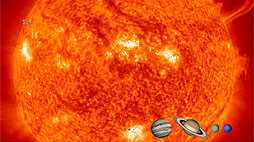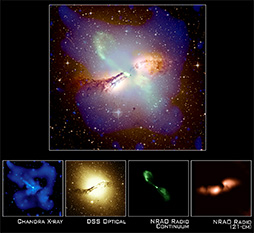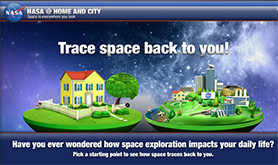Year 3 to 6

Education Programs
The CDSCC Visitor Centre offers an informative and enjoyable way to learn about the planets and the story of space travel; and how we here on Earth communicate with and benefit from spacecraft exploring our Solar System and beyond.
For Schools
We offer a variety of school education program formats that target the curriculum standards and meet classroom lesson plans in consultation with teachers. Our programs are suitable for primary (Years 3-6).
For Year 3-6 students, our free education programs run for 90 minutes. However, we understand that you might have less time available (especially for interstate schools) and can tailor a program to suit. We do recommend though making the 90-minutes available so that we can cover the topics below (or something else you'd like us to concentrate on) and provide extra time for all those great questions your students are likely to ask.
A typical visit for Primary school students includes:
- A brief introduction on arrival, and an orientation to the Visitor Centre facilities.
- Familiarisation with key historical aspects of the Complex, including the story of our 26-metre antenna Deep Space Station 46 (DSS-46). This was the antenna responsible for returning the 'first' pictures of Neil Armstrong walking on the Moon in July 1969.
- Introduction to the other antennas, particularly DSS-43, the largest antenna in the Southern Hemisphere.
- Overview of the work of the CDSCC and the significant role that Australia plays in space exploration.
- Students are given time to look through the Visitor Centre exhibits. Fact sheets are available to collect.
- A presentation in our main theatre. We discuss various aspects of exploration and space science and incorporate information on some of the latest missions and images being returned from space.
- We include time for questions about exploring space, spacecraft tracking, or take questions on a specific area that you wish to cover as part of your current lesson plan (advance notice of your needs will assist us).
- Spare time can include opportunities for your students to explore the Centre further, or watch videos.
Related Activities
Year 3/4
- Learn about some of the robotic missions that are currently exploring the Solar System and beyond e.g. NASA/JPL, European Space Agency, Japanese Space Agency, Indian Space Agency
- Get the students to predict how daily activities for astronauts in space might be different from on Earth. Then learn about how they are different e.g. cleaning teeth, toilets, sleeping, eating. There are videos on youtube that show how some things are different in space
- Research whether there will be any rocket launches coming up - most are shown live on the internet and can be watched in class if the timing is correct. A list of upcoming rocket launches can be found here .
Year 5/6
- Research some of the spin-offs that have come from space exploration that are used every day on Earth. This can cover a wide range of student interest areas, from items that are used by everybody every day, to medical advancements. Each year NASA produces a list of spin-offs that can be found on their website . (ACSHE083 )
- Look up the statistics on sizes of planets, their number of moons, and which spacecraft have/are exploring those worlds using NASA's Solar System Exploration website .
Booking an Excursion
We look forward to making your visit as easy and enjoyable as possible. Please note that places fill fast each year, so your advance booking helps us to ensure that staff are available to guide you through your visit.
Our school programs operate:
- February through to the start of the last full week of November only
- Monday to Friday (No programs during ACT school/public holidays)
- First program starts at 9am
- Last group starting at 3pm
- Each session lasts 90-minutes
Best of all your entry to the Visitor Centre and its school programs is FREE!
You can find our Risk Assessment and Public Liability Insurance documentation here.
Booking Contact Details
If you have any further questions about visiting the Centre or would like to make a Booking request, please feel free to contact us.
Office Hours: Monday - Friday between 7:45am and 4:30pm AEST or AEDT (depending on the time of year).
Phone: 02 6201 7807 or 02 6201 7809
Email: pr@cdscc.nasa.gov
Please Note
The CDSCC is not an Observatory with optical telescopes. We do not offer night-time programs. Our work is in two-way robotic spacecraft communication and radio astronomy.
Fast Facts - Education Programs
- Programs are suitable for year 3-6
- Programs run for 90 minutes
- We do not run night programs
- Programs operate Mon-Fri
- We do not provide programs in ACT school/public holidays
- Programs and admission are free
- Minimum group size of 10 students
- Bookings are essential
- Bookings run 6-18 months in advance
- Special needs students catered for
- G'n'T students catered for
- Specific subject programs on request
Education Links
Resources
Scale
Suitable for Year 3-12.
Our popular presentation on the scale of objects in the universe.
Powerpoint format - File size: ~40MB

Multiwavelength Astronomy
Suitable for Year 5-12
Our presentation on how we use the electromagnetic spectrum to explore space. Starting with an Earth-based context that the students will be familiar with, and then moving to planets, nebulae, and galaxies.
Powerpoint format - File size: 12.9MB
Note: Additional animation to download (needs to be re-embedded in the presentation) - 3.8MB .mov here

Citizen Science
Suitable for Year 4-12
Certain projects may be suitable for younger students
As a volunteer on these websites, both you and your students can become citizen scientists and citizen researchers, participating in real science and other research.

ZooTeach is a repository of lessons and resources for teachers, including: guides to projects for students and teachers, teacher-created presentations designed to introduce students to a particular project, and lessons developed to connect your students to projects and research within the context of things they already know.

NASA Spinoffs Home and City (interactive)
Year 5 - Science as a Human Endeavour ACSHE083 . Describing how technologies developed to aid space exploration have changed the way people live, work and communicate
